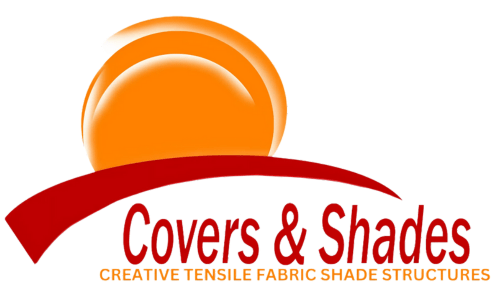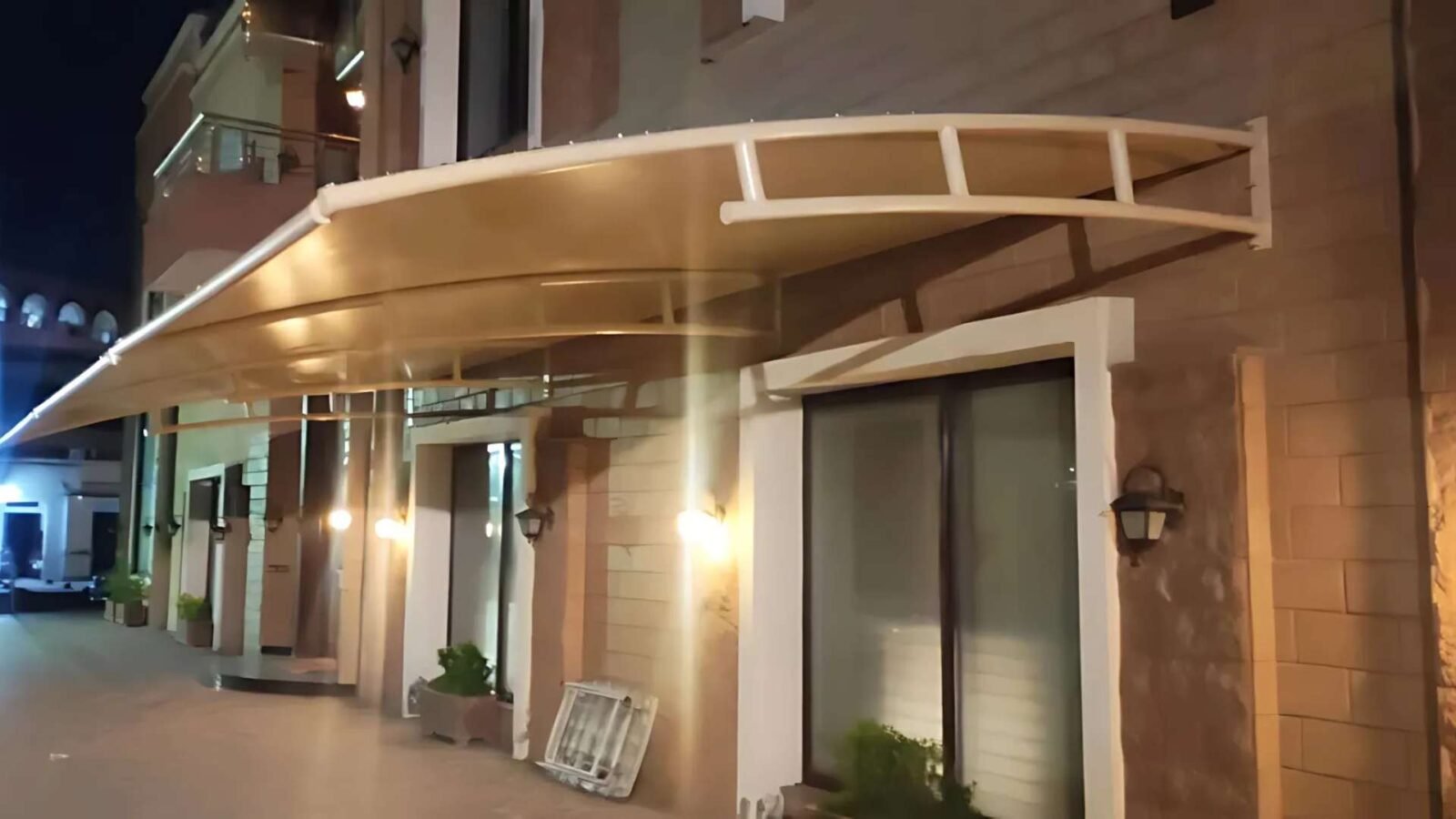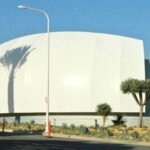In Pakistan’s hot and sunny climate, outdoor shading solutions are essential for both practical and aesthetic reasons. Effective sun protection helps keep spaces cool, reduces energy costs, and ensures comfort, especially during the scorching summer months. Additionally, outdoor shades enhance the visual appeal of homes, offices, and public spaces by offering stylish and functional solutions.
When considering shading options, two popular choices stand out: tensile fabric shades and traditional awnings. Both offer distinct advantages and can be tailored to different needs and preferences. In this comparison, we will explore the features, benefits, and differences between these two types of outdoor shades to help you make an informed decision.
Understanding Tensile Fabric Shades
Tensile fabric shades are a modern and innovative outdoor shading solution that uses high-strength fabric stretched over a supporting framework to create a durable and flexible structure. These shades are made from tensile fabrics such as PVC-coated polyester or PTFE (polytetrafluoroethylene) that are designed to withstand harsh weather conditions, including strong winds and heavy rain. The structure relies on a combination of tension and compression forces to maintain the fabric’s tautness, making it both lightweight and strong.
The design of tensile fabric shades offers a high degree of flexibility. These structures can be custom-made to fit a wide range of applications, from car parking shades to patios, walkways, and even large outdoor event spaces. The fabric can be shaped into various forms, including curves, angles, or even more complex architectural designs, offering both functionality and aesthetic appeal.
Benefits of Tensile Fabric Shades
- Durability and Longevity: Tensile fabrics are built to last, with resistance to UV rays, water, and extreme weather conditions. This makes them a reliable choice for outdoor environments in Pakistan’s harsh climate.
- Superior Sun Protection: The fabric provides excellent protection from the sun’s harmful UV rays, reducing the risk of sun damage to vehicles, furniture, and outdoor spaces.
- Aesthetic Appeal: Tensile fabric shades come in a variety of colors, shapes, and designs, allowing for customization that enhances the visual appeal of any outdoor area. Their sleek, modern look adds a sophisticated touch to the environment.
- Energy Efficiency: By blocking out the sun’s heat, tensile fabric shades can help reduce cooling costs, keeping buildings and outdoor spaces cooler during the hotter months.
- Low Maintenance: Unlike traditional awnings, tensile fabric shades require minimal maintenance. The materials are resistant to mold, mildew, and stains, making them easy to clean and maintain.
- Design Flexibility: Tensile fabric shades can be designed to fit specific spaces and requirements. Whether you need a simple parking shade or a large canopy for an event, the design options are endless.
- Eco-Friendly: Many tensile fabrics are recyclable, making them an environmentally friendly choice. Additionally, their energy-saving properties contribute to reducing the overall environmental footprint.
- Lightweight and Space-Efficient: These shades are lightweight yet strong, offering a space-saving solution for areas that need shading without taking up too much space or creating a bulky structure.
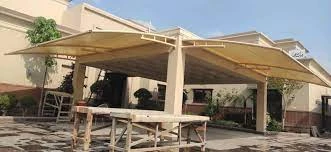
Exploring Traditional Awnings
Traditional awnings are external coverings that provide shade and protection from the elements, typically attached to a building’s exterior. These awnings are made from a variety of materials, such as canvas, aluminum, or even vinyl, each offering different levels of durability and appearance. The structure of traditional awnings usually consists of a frame (often made of metal or wood) that supports the fabric or solid material. The fabric can be fixed or retractable, depending on the design.
Common styles of traditional awnings include:
- Fixed Awnings: These are permanently installed and can be made from materials like canvas or aluminum. They provide constant shade and protection but are not adjustable.
- Retractable Awnings: These allow users to extend or retract the awning as needed, offering flexibility in shading outdoor areas.
- Dome Awnings: Featuring a rounded design, dome-style awnings are often used to provide shade over doors or windows.
- Casement Awnings: These are typically smaller and placed above windows or doors to shield against sun and rain.
Advantages of Traditional Awnings
- Cost-Effective: Traditional awnings, especially those made of canvas or aluminum, are often more affordable compared to other shading solutions, making them a popular choice for homeowners and businesses on a budget.
- Simple Installation: Traditional awnings are relatively easy to install, particularly retractable versions. Their straightforward design makes them less labor-intensive to set up.
- Variety of Materials and Styles: Traditional awnings come in a wide range of materials (canvas, aluminum, vinyl) and colors, giving you many options to choose from based on your aesthetic preferences and needs.
- Easy to Maintain: Fabric-based traditional awnings, especially canvas, are easy to clean and maintain. Retractable options can also be tucked away to avoid weather damage when not in use.
- Weather Protection: Traditional awnings provide reliable protection against the sun, rain, and wind, ensuring your outdoor space remains functional and comfortable regardless of weather conditions.
- Energy Efficiency: Much like tensile fabric shades, traditional awnings can also help reduce indoor temperatures by blocking direct sunlight, leading to lower cooling costs.
- Versatility: Traditional awnings can be used in a variety of outdoor spaces, from windows and patios to entryways, providing versatile solutions for both residential and commercial properties.
- Timeless Design: While they may not have the modern flair of tensile fabric shades, traditional awnings offer a classic look that has been trusted for many years. Their presence can enhance the curb appeal of a property, giving it a more inviting, established feel.
Comparative Analysis
Cost Considerations:
- Tensile Fabric Shades: Initially, tensile fabric shades tend to be more expensive due to the custom design, high-quality materials, and engineering involved in their construction. However, the durability and energy-saving benefits provide long-term value. Maintenance costs are minimal as these shades are designed to withstand harsh weather conditions and require little upkeep.
- Traditional Awnings: Traditional awnings are typically more affordable upfront, especially for canvas or aluminum types. However, they may incur higher maintenance costs over time, particularly if the fabric fades or deteriorates from exposure to the elements. While initial investment is lower, traditional awnings may not offer the same long-term value in terms of durability and energy savings as tensile fabric shades.
Installation Process:
- Tensile Fabric Shades: The installation of tensile fabric shades is more complex and may take more time due to the need for custom sizing and structural design. Professional installation is typically required to ensure the fabric is properly tensioned and the frame is secure.
- Traditional Awnings: Installation of traditional awnings is generally quicker and easier, especially for retractable models or pre-fabricated options. They can often be installed by the homeowner or a local contractor, with less need for specialized skills or tools.
Maintenance Requirements:
- Tensile Fabric Shades: Tensile fabric shades are low maintenance. The fabric is resistant to mold, mildew, and UV damage, making them easy to clean with minimal effort. Regular cleaning (e.g., washing with mild soap and water) and periodic inspections for wear and tear will help extend their lifespan.
- Traditional Awnings: Traditional awnings require more frequent maintenance, especially fabric-based models. The fabric may need to be cleaned regularly, and over time, it may require re-coating or replacement if it becomes worn. Retractable awnings also need to be maintained to ensure the mechanism is working smoothly. Metal awnings, though more durable, may need repainting to prevent rusting.
Climate Suitability:
- Tensile Fabric Shades: Tensile fabric shades are highly suited for Pakistan’s hot summers and monsoon seasons. Their UV-resistant fabrics protect against the sun, and the breathable material allows air to circulate, preventing heat buildup. These shades are designed to handle heavy rain and strong winds, making them ideal for the region’s variable weather.
- Traditional Awnings: Traditional awnings, particularly fabric ones, offer good protection against the sun but may struggle to withstand the heavy rains and high winds common in Pakistan’s monsoon season. Aluminum or metal awnings can handle rain better but may still be less flexible in extreme weather conditions compared to tensile fabric shades. Additionally, fabric awnings may degrade faster in the intense heat and humidity.
Versatility and Functionality:
- Tensile Fabric Shades: Tensile fabric shades offer greater design versatility and are suitable for a wide range of applications. From residential patios and car parking shades to large commercial spaces, these shades can be customized to fit specific needs. Their modern design and ability to cover large areas make them perfect for both small homes and large public spaces or events.
- Traditional Awnings: Traditional awnings are also versatile, but they tend to be more suited for smaller applications like window coverings, doorways, and small patios. Their design and structure are often more fixed, limiting customization. While they work well in residential spaces, larger commercial properties might require additional or multiple installations to achieve the desired coverage.
Market Trends in Pakistan
In recent years, the popularity of tensile fabric shades has been steadily growing in urban areas across Pakistan. With the increasing demand for efficient, aesthetically pleasing, and durable outdoor shading solutions, tensile fabric shades have emerged as the preferred choice for modern homes, businesses, and public spaces. Urban areas, in particular, have witnessed a shift towards these innovative shading solutions due to their superior functionality, long lifespan, and customization options. As cities grow and the need for sustainable and stylish outdoor solutions intensifies, tensile fabric shades have become a key element in architectural design.
The rise in popularity is also driven by the growing awareness of environmental concerns, with many people seeking energy-efficient solutions to reduce their carbon footprint. Tensile fabric shades help maintain cooler temperatures indoors by blocking out the sun’s heat, ultimately reducing energy costs. Moreover, their use of recyclable and eco-friendly materials is increasingly appealing to eco-conscious consumers.
Local Manufacturers and Suppliers
In Pakistan, several local manufacturers and suppliers are meeting the growing demand for both tensile fabric shades and traditional awnings. One of the leading names in the market is Covers and Shades, a trusted supplier specializing in tensile fabric car parking shades, window shades, and custom outdoor shading solutions. Covers and Shades has become a prominent player, offering high-quality tensile fabric structures and shading systems for residential, commercial, and industrial applications. Their expertise in combining steel and wood furniture with shading solutions has earned them a solid reputation in the market.
Other notable suppliers include companies specializing in traditional canvas and aluminum awnings, which are still popular for residential applications. These manufacturers offer a range of options for window coverings, patios, and doorways, often catering to budget-conscious consumers.
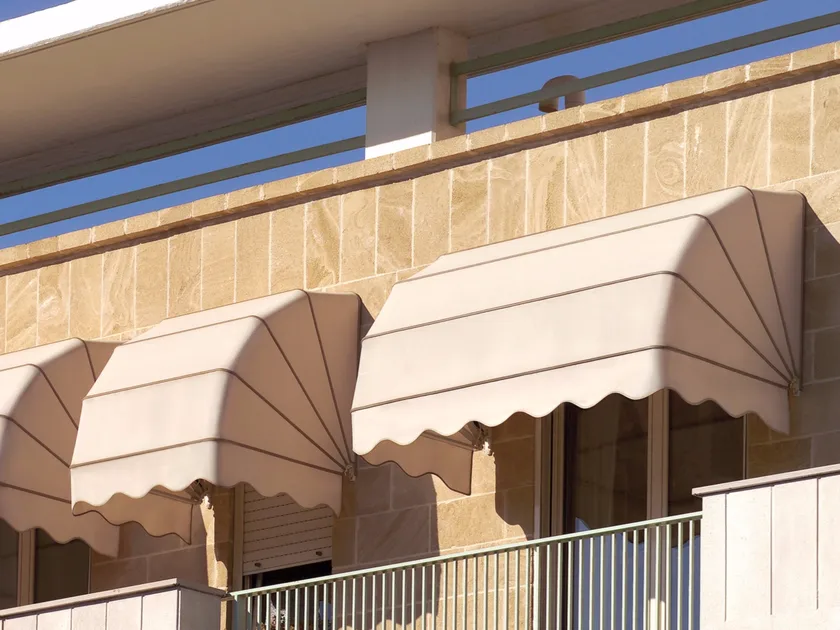
Government Regulations and Incentives for Eco-Friendly Materials
The government of Pakistan has shown increasing support for sustainable development, and eco-friendly building materials, including tensile fabrics made from recyclable materials, are gaining traction. While there are currently no widespread national incentives specific to tensile fabric shades, several local authorities and urban development initiatives encourage the use of energy-efficient materials and green building practices. Various building codes and regulations are being updated to promote energy conservation, including the use of shading systems that reduce heat buildup and reliance on air conditioning.
In some cities, green building certifications, such as LEED (Leadership in Energy and Environmental Design), are becoming more popular. These certifications reward the use of sustainable building materials and energy-efficient systems, including eco-friendly shading solutions. While direct financial incentives for using tensile fabric shades may not be widespread, the growing emphasis on environmental sustainability is likely to drive further adoption in the coming years.
As the market for eco-friendly and efficient outdoor shading solutions continues to expand, both manufacturers like Covers and Shades and consumers will benefit from this trend towards sustainable building practices and innovative designs.
Conclusion
In conclusion, the choice between tensile fabric shades and traditional awnings ultimately depends on your specific needs, preferences, and budget. Tensile fabric shades offer superior durability, design flexibility, and energy efficiency, making them an excellent choice for those seeking long-term value and modern aesthetics. They are particularly suited for urban environments, where custom solutions and eco-friendly materials are in high demand. On the other hand, traditional awnings provide a more affordable upfront cost and simpler installation, making them a great option for smaller, budget-conscious projects.
When deciding, it’s important to consider the style, functionality, and climate suitability of each option. Tensile fabric shades excel in handling Pakistan’s hot summers and monsoon rains, while traditional awnings can provide reliable shade in more sheltered locations. Think about the specific requirements of your outdoor space—whether you need a large canopy for a commercial property or a smaller window covering for your home—and choose the option that best fits.
For personalized recommendations, it’s always a good idea to consult with local experts or suppliers. Companies like Covers and Shades specialize in both tensile fabric shades and traditional awnings, offering tailored solutions to meet your unique needs. Assessing your space with the help of professionals will ensure that you make the best choice for both function and style.
Tell Us About Your Shading Experience and Get Personalized Advice!
We’d love to hear about your experiences with tensile fabric shades or traditional awnings! Share your thoughts and insights in the comments below—whether you’ve installed either product at your home or business, or if you’re still deciding which one is the right fit for you.
For more information on purchasing and installing outdoor shading solutions, check out these trusted local suppliers and resources:
- Covers and Shades: Experts in tensile fabric shades and custom outdoor shading solutions. Visit their website for more details and personalized recommendations.
Feel free to reach out to these suppliers to discuss your needs, request quotes, or schedule an installation consultation. Contact Us to find the perfect shading solution for your space!
